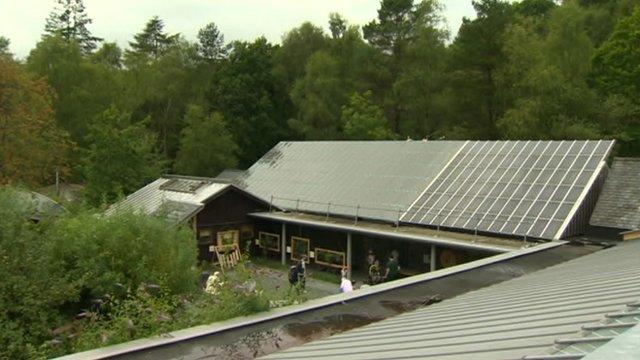Climate change: UK 'has technology' for zero carbon
- Published
- comments
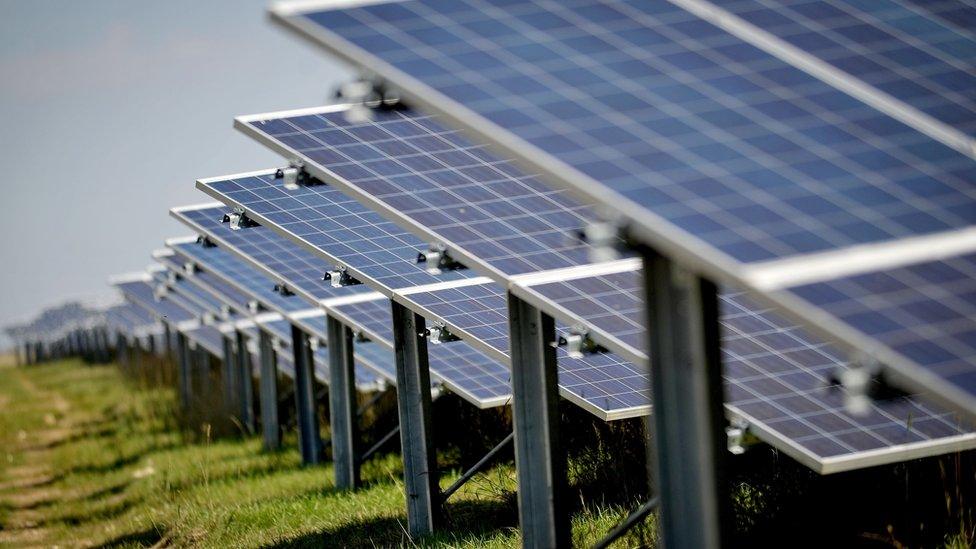
Trebling solar power is a possible way the UK could met its net zero carbon emissions target
Eliminating greenhouse gas emissions in the UK is achievable with current technology, according to a new report.
The Centre for Alternative Technology (CAT) said a net zero-carbon Britain is already possible, without relying on future developments.
The Powys-based charity said changes to buildings, transport and industry could help slash UK energy demand by 60%.
"We have the technology to combat climate change and we can start today," said project coordinator Paul Allen.
The CAT report - Zero Carbon Britain: Rising to the Climate Emergency, external - also claims making further changes to energy, diets and land use could help provide 100% renewable energy and cut emissions from agriculture and industry.
That would mean the UK would not be reliant on "as yet unproven" technologies, such as carbon or air capture, said Machynlleth-based CAT.
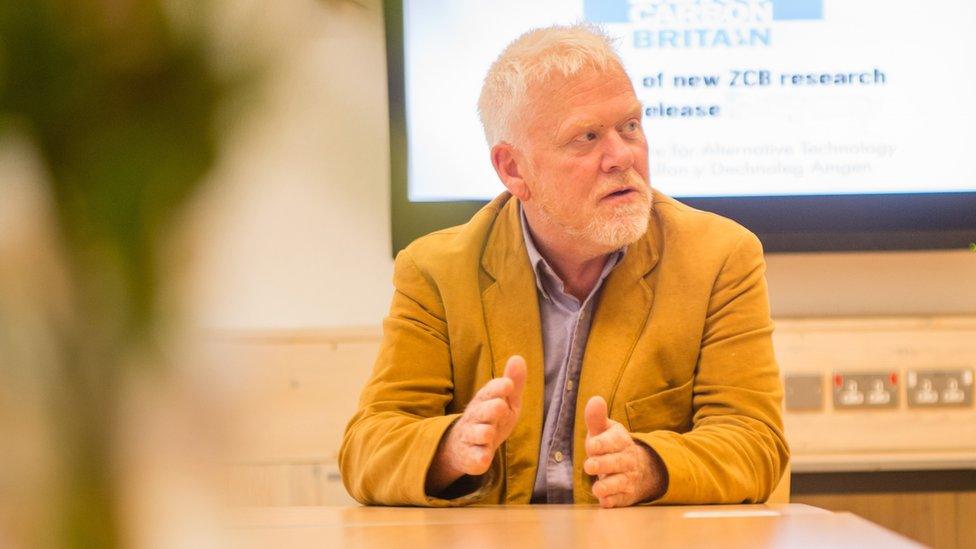
Established 45 years ago, CAT Charity, based in Machynlleth, is known as a centre of excellence for environmental education
Mr Allen said using alternatives to technology that is ready to be rolled out at scale was "not worth the risk".
However, the UK government described carbon capture as a "game-changing technology" in addressing climate change and said the country's first project should be operational next year.
Britain was the first major nation to propose cutting greenhouse gas emissions to zero, promising to do so by 2050.
How can we become carbon free?

Vegan burgers are now a regular on restaurant menus
Reducing energy use
CAT said more new houses should be built to high Passivhaus standards that can reduce energy costs to just £15 a year by using insulated masonry and concrete, triple-glazing, LED lighting and air-source heat pumps.
Some of these changes could also be fitted to existing buildings to improve temperature control and potentially reduce heating use by around 50%.
Transport energy demand could also be cut by 78% by increased use of public transport, walking, cycling and using electric vehicles while cutting flights by two-thirds.
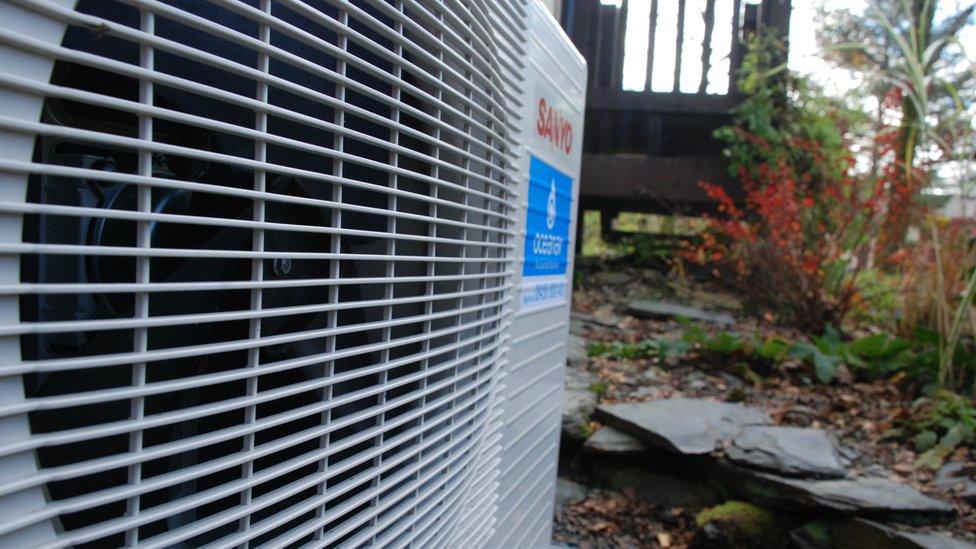
Heat pumps could be crucial to helping reduce energy costs in buildings
Increasing energy supplies
Based on the past decade's weather and energy use, it is possible to fully match the UK's entire energy demand with renewable and carbon-neutral energy, the report claims, if CAT's recommendations are carried out.
Half of that would be provided by wind while other sources suited to the UK climate - including geothermal, hydro, tidal and solar - would produce most of the rest.
Carbon-neutral synthetic fuels are also an important alternative to electricity, especially in some areas of industry and transport.
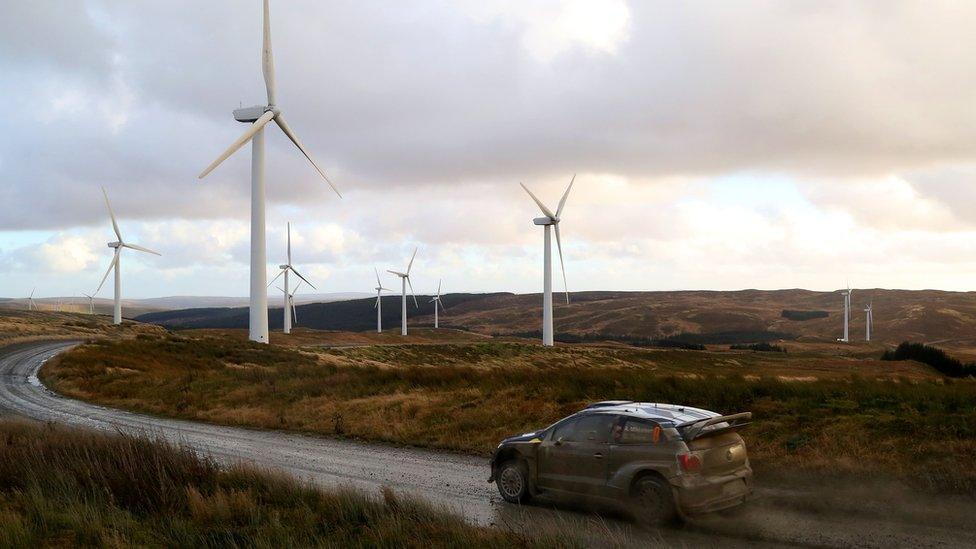
Wind could provide half the energy required in a zero carbon UK
Transforming land and diets
Switching from meat and dairy to plant-based proteins, reducing food waste and improving agriculture could go a long way to cutting carbon emissions, the report said.
CAT says the UK can:
Reduce on-farm greenhouse gas emissions by 57% (compared to 2017)
Cut food imports from 42% to 17%
Use 75% of current livestock grazing land for restoring forests and peat-lands
"We can still have coffee, chocolate and tea in a zero-carbon Britain, but the UK currently imports many foods that we can easily grow here," said Mr Allen.
"By changing what we eat and how it's grown, and by wasting less food, we can reduce greenhouse gas emissions, increase resilience and improve health and wellbeing."
CAT is urging politicians to come up with action plans with policy frameworks and large-scale investment as a matter of urgency.
What to look out for on climate change and the environment in this election
What are the politicians saying?
Recent polling said the environment was one of the top priorities for voters at this year's general election.
As well as the 2050 pledge, the Conservatives announced a halt to fracking, the controversial process of extracting gas from shale rock. Labour derided the halt as a pause rather than a total ban.
Labour followed that with a warm homes plan to insulate the country's nearly 27 million households and help with solar panels and heat pumps. The Tories dismissed the scheme's £250bn bill as unaffordable and unrealistic.
The Liberal Democrats have pledged a £100bn climate fund over five years to be funded through borrowing and tax changes.
The Green Party has gone further, promising £100bn, every year to reach net zero carbon emissions in the UK by 2030.
Plaid Cymru leader Adam Price has called for a £20bn "green jobs revolution" in Wales including three tidal lagoons, a barrage and a new offshore wind farm.
- Published27 November 2019

- Published24 August 2019

- Published23 August 2019
- Published12 June 2019
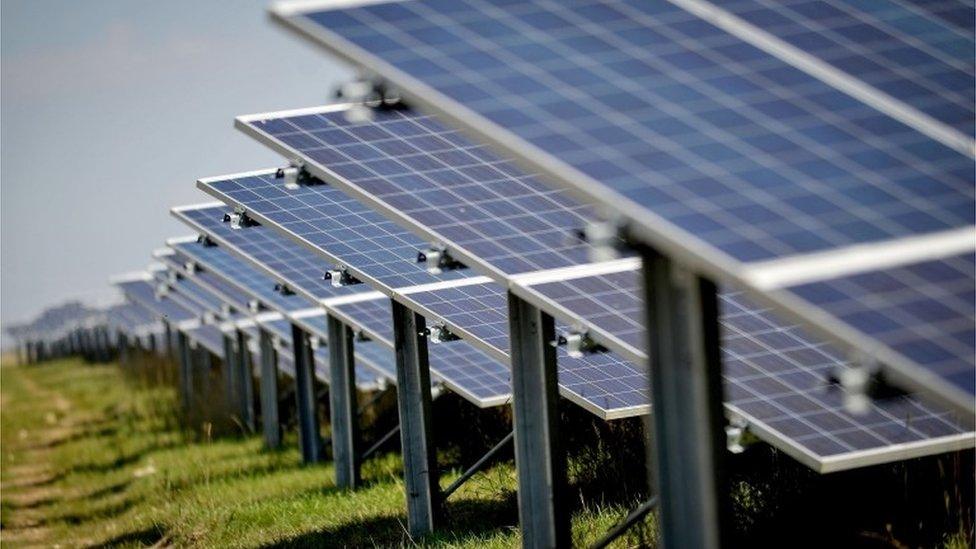
- Published3 May 2019

- Published2 December 2018
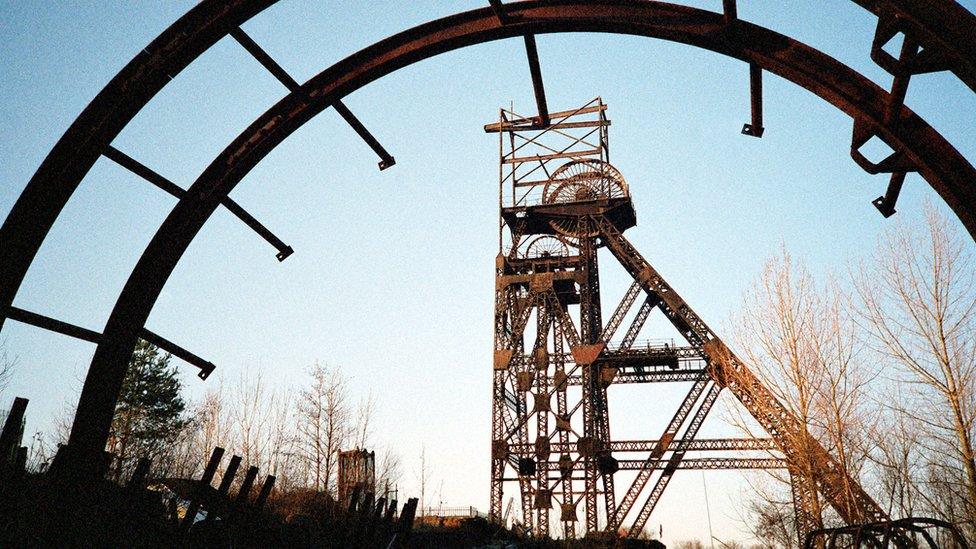
- Published28 November 2018
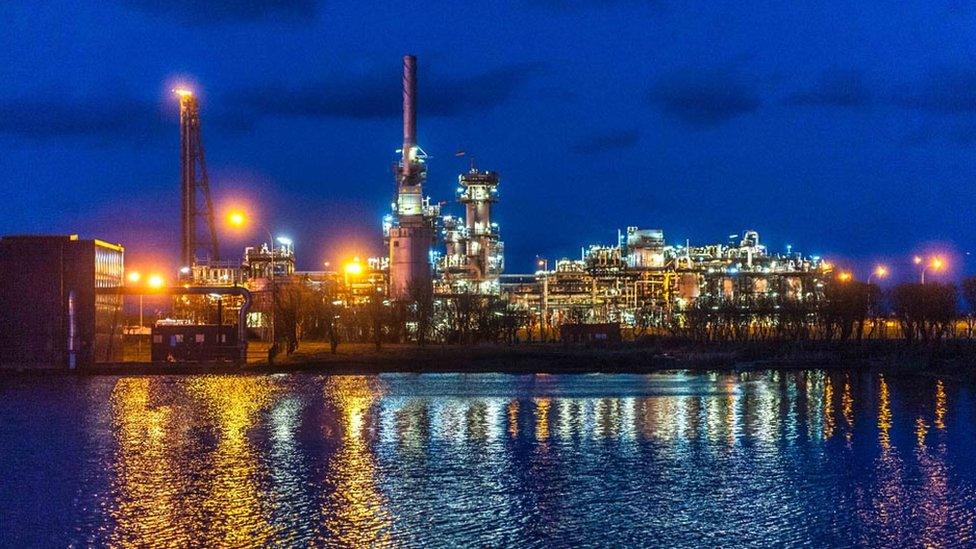
- Published3 December 2015
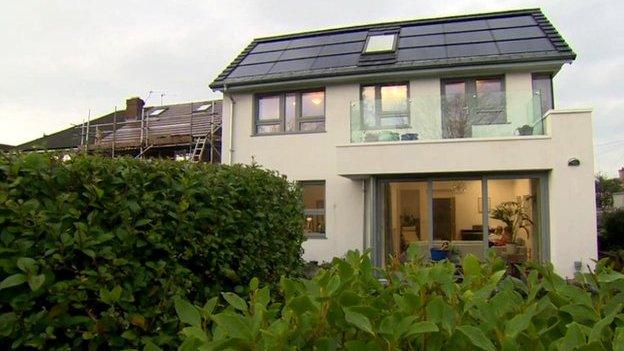
- Published29 July 2014
